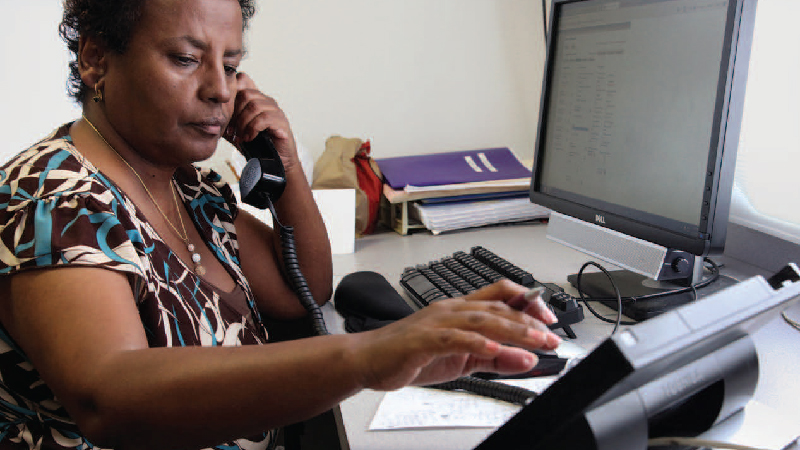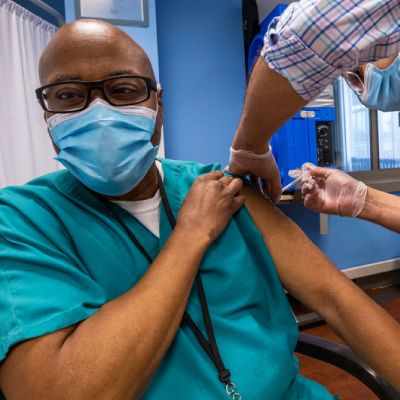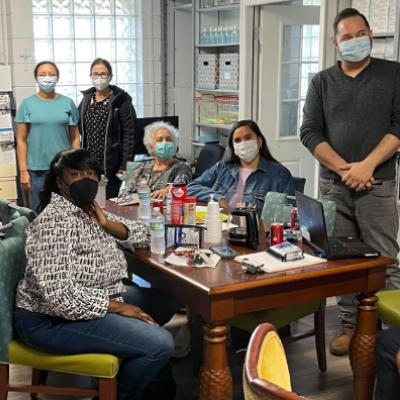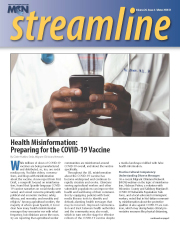- Who We Are
- Clinician Employment
- Publications
- Witness to Witness (W2W)
- El Premio Kugel & Zuroweste a la Justicia en la Salud
- Your Voice Matters: Photovoice Project
Tue, 03/30/2021 | by MCN Admin


IPV and COVID-19
Intimate partner violence is the physical violence, sexual violence, stalking, or psychological harm by a current or former partner or spouse, according to the CDC. A recent special report from the National Domestic Violence Hotline said that total contacts to the hotline increased nine percent during the early COVID-19 months, with many victims specifically calling out COVID-19 as a condition of their experience. Ninety percent of those who contacted the hotline said they were experiencing emotional or verbal abuse; 61 percent experienced physical abuse; 24 percent experienced economic or financial abuse; 16 percent digital abuse; and 11 percent sexual abuse. Read the full report at:
https://www.thehotline.org/resources/a-snapshot-of-domestic-violence-during-covid-19/
Visit the CDC for more on what IPV is:
https://www.cdc.gov/violenceprevention/intimatepartnerviolence/index.html
Futures Without Violence
Futures Without Violence operates the National Health Network on Intimate Partner Violence and Human Trafficking, funded by the Health Resources and Services Administration (HRSA). The National Health Network works with health centers and systems to support those at risk of experiencing or surviving intimate partner violence (IPV) or human trafficking (HT) and to bolster prevention efforts. In 2020, Future joined a cohort of twenty other National Training and Technical Assistance Partners (NTTAPs), including Migrant Clinicians Network. NTTAPS provide training and technical assistance to address the operational, clinical, access, and technology needs of health centers.
The National Health Network on Intimate Partner Violence and Human Trafficking offers health centers training on trauma-informed and healing-centered services, building partnerships, policy development, and the integration of processes designed to promote prevention and increase the identification and referral to supportive services for individuals at risk for, experiencing, or surviving IPV and HT. Learn more about the National Health Network on IPV and Human Trafficking:
https://www.futureswithoutviolence.org/health/nationalhealthnetwork
Futures Without Violence operates the National Health Network on Intimate Partner Violence and Human Trafficking, funded by the Health Resources and Services Administration (HRSA). The National Health Network works with health centers and systems to support those at risk of experiencing or surviving intimate partner violence (IPV) or human trafficking (HT) and to bolster prevention efforts. In 2020, Future joined a cohort of twenty other National Training and Technical Assistance Partners (NTTAPs), including Migrant Clinicians Network. NTTAPS provide training and technical assistance to address the operational, clinical, access, and technology needs of health centers.
The National Health Network on Intimate Partner Violence and Human Trafficking offers health centers training on trauma-informed and healing-centered services, building partnerships, policy development, and the integration of processes designed to promote prevention and increase the identification and referral to supportive services for individuals at risk for, experiencing, or surviving IPV and HT. Learn more about the National Health Network on IPV and Human Trafficking: https://www.futureswithoutviolence.org/health/nationalhealthnetwork and visit www.IPVHealthPartners.org for health center and IPV program resources.
By Claire Hutkins Seda, Senior Writer, Migrant Clinicians Network and Managing Editor, Streamline
Intimate partner violence (IPV) can be difficult for a clinician to identify or address with a culturally competent and trauma-informed approach during a brief encounter, whether in the exam room or during an outreach visit. Because of their migratory status and rural locations, migrant agricultural workers or family members experiencing abuse from a partner frequently have trouble accessing resources and support: they may have newly arrived and are unaware of community-based organizations or health centers with IPV programs; they may have few opportunities to meet community members or outreach team members because of partners’ control; and they may have no transportation options to leave their rural farm housing to get help. Additional barriers -- like cultural and language differences, fear of revealing immigration status, a lack of health insurance -- further reduce a victim’s ability to seek and access help. COVID-19 has added yet another hurdle.
As the shelter-in-place orders reduced communication outside of one’s direct household, abusers had opportunities to increase the power and control exerted over their victims, says Lisa James, Director of Health with Futures Without Violence, a nonprofit working to end IPV. “Limiting access and further isolating, misrepresenting or overstating the rules in place, limiting hand sanitizer – the big picture is controlling the narrative of the pandemic in a way to further control and isolate their partners,” James said. “As always, [this includes] interfering with access to services like health care visits, and that’s true in a pandemic or not.”
Simultaneously, health centers around the country had to pivot to virtual appointments, which may have disrupted workflows and strategies that aimed to address IPV. As early as April 2020, James says that Futures Without Violence began receiving many requests from health centers, clinics, and individual clinicians around the country seeking strategies and special considerations for addressing IPV in the context of virtual visits, which posed unique safety and privacy considerations. James and her team at Futures quickly shifted to adapt their recommendations for a newly all-virtual world.
Safety and Privacy
This new approach starts with the set-up of the virtual visit. "If someone is in a controlling relationship, the person who is trying to control them might be in the room, and also might be monitoring calls, texts, chats, and computer access, so many survivors don’t have access to digital privacy,” James noted, which complicates any virtual approach to care. “It’s absolutely critical to check and make sure it’s a good time to have a telehealth visit, make sure they find a safe space to talk, that privacy is secured as much as possible before any conversations about violence or abuse.” Futures recommends very specific practical ideas to make sure a patient can stay safe and maintain confidentiality: if children are present, Futures suggests having the children wear headphones while they watch or listen to entertainment. If a partner may be monitoring calls, Futures provides information on how to delete text history or clear the browser’s cache. If a patient is referred to a community-based organization focused on abuse, the victim is recommended to program the contact information of the organization as the name of a grocery store or a common female first name.
Universal Education
Futures believes strongly in universal education around IPV, even during virtual visits. “Because of the stress of COVID-19, we’re sharing this information with everybody, so that you can share with a friend or family member,” is how James recommends framing a conversation about abuse. Futures has multiple scripts and tools specifically for the virtual encounter on how to broach and continue the conversation. “[Virtual visit recommendations] mirror what is a longstanding practice of ours, which is universal education on how violence and abuse and unhealthy relationships impact health – and having that conversation with everybody, without asking for disclosure,” she said. “They might not be ready to disclose, but they can receive the information – and that’s even more critical during the pandemic.”
If a patient does decide to disclose abuse, the clinician can provide support and an altered care plan that takes into consideration the coercion or interference that the victim may be facing. Futures has text-based tools to help share information on where to get help or forward it on to others. “We shifted our usual approach to one that’s more mobile and really engaging the patients as partners in prevention.” James notes that, despite the pandemic, most IPV support organizations are still operating and ready for referrals. She recommends that health centers connect regularly with local community-based organizations with which they partner, to get updates on any COVID-19-related changes in the referral process that clinicians can then relay to patients, so the process is clear for all parties.
Removal of Barriers
James noted that the pandemic has created an intimacy and emotional connection that in some ways benefit the patient-provider relationship, building trust and allowing for an easier bridge to talk about IPV. “One of the things that we heard from health care providers was that because of the seriousness of the pandemic and how quickly people shifted to virtual – and what a privilege it is to see [patients] in their homes or from their cars – our health care providers reported that there was a breaking down of barriers,” James noted. Emotional check-ins at the start of a visit “is so natural during the pandemic, and [lent] itself to an easier transition to the universal conversation on IPV.” While the COVID-19 vaccine provides a glimmer of a return to normalcy on the horizon, with in-person clinical encounters, virtual visits will not soon be dismissed, as the infrastructure has been developed and ease of use obtained. Regardless of the format of an encounter, perhaps the benefits of a levelled relationship between patient and provider will linger after the pandemic retreats.
Resources:
Read Futures’ numerous resources developed specifically for health center staff partnering with local IPV programs, including more information on telehealth and IPV: https://ipvhealthpartners.org/covid19/
Access Futures’ resources on COVID-19 and IPV, including hotline and patient-forward information: https://www.futureswithoutviolence.org/get-updates-information-covid-19/
Watch the archived webinar presented by Futures and MCN on migrant agricultural worker populations, IPV, and COVID-19 and more: https://bit.ly/3pKpdhZ
Futures will host several learning collaboratives specifically for clinicians: https://www.futureswithoutviolence.org/health/nationalhealthnetwork
Read Futures’ numerous resources developed specifically for health center staff partnering with local IPV programs, including more information on telehealth and IPV: https://ipvhealthpartners.org/covid19/
Access Futures’ resources on COVID-19 and IPV, including hotline and patient-forward information: https://www.futureswithoutviolence.org/get-updates-information-covid-19/
Watch the archived webinar presented by Futures and MCN on migrant agricultural worker populations, IPV, and COVID-19 and more: https://bit.ly/3pKpdhZ
Futures will host several learning collaboratives specifically for clinicians: https://www.futureswithoutviolence.org/health/nationalhealthnetwork
Read this article in the Winter 2021 issue of Streamline here!
Sign up for our eNewsletter to receive bimonthly news from MCN, including announcements of the next Streamline.
Like what you see? Amplify our collective voice with a contribution.
Got some good news to share? Contact us on our social media pages above.
Return to the main blog page or sign up for blog updates here.








